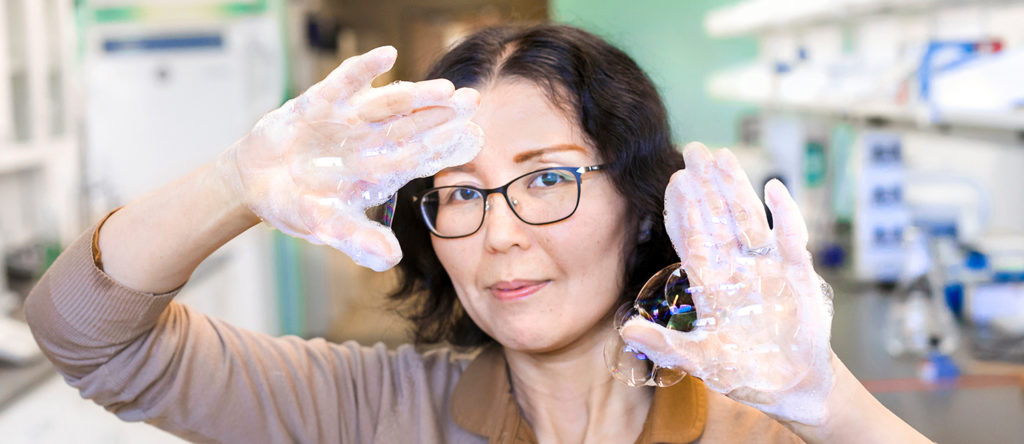Hongbo Ma used to think antibacterial soap was her friend – or, at the very least, her ally – if she thought of it at all. Ma, an associate professor of environmental health sciences in the Joseph J. Zilber School of Public Health at UW-Milwaukee, is an environmental toxicologist by training, dedicated to safeguarding human health from dangerous chemicals. Washing one’s hands with a strong soap would seem to be a good way to help cleanse the body of toxins.
However, in 2016, when the U.S. Food and Drug Administration banned 19 supposedly antibacterial additives from over-the-counter hand soaps, Ma took note. She was less concerned with the newly prohibited chemicals – which included the antifungal agent triclosan, the antibacterial triclocarban and the disinfectant hexachlorophene – than she was with what would be in the dispenser next. “The replacement compounds weren’t exposed to much research,” she says. “The question is: Are these new compounds supposed to be safer?”
Ma set out to answer that question. And she found some dirt underneath the fingernails. Not only were the new chemicals no safer to use, but in some cases, they were actually more toxic than the additives they were replacing. More

